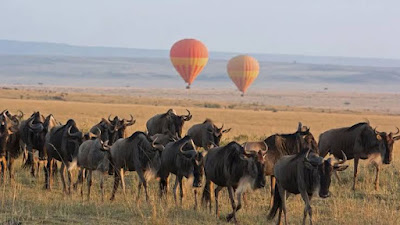PASSPORT & VISA
CUSTOM
CURRENCIES
Tanzania Shilling is the official currency of the United Republic of Tanzania. It is against the law to import or export Tanzania Shilling. Visitors can bring with them any amount of foreign currency up to the equivalent of USD 10,000 but amounts above this have to be declared on arrival or departure. Foreign currency may be exchanged at the commercial banks, authorised dealers, or at the bureaux de change operating at the international airports and major towns. Your local driver-guide will be in hand to assist. It is illegal to exchange money to individuals who are not authorised dealers.
DEPARTURES
CLIMATE
Situated on the east coast of Africa just south of the Equator, Tanzania enjoys a tropical climate constantly warm throughout the year, humid at the coast, fresh and bracing in the highlands, and tempered by Indian Ocean breezes on the islands. In the northern highlands around Arusha, Ngorongoro, Mt Kilimanjaro and Usambara, and in the southern highlands around Iringa and Mbeya area, the climate is temperate and cooler between June and September. The warmest period is between October and February.
Twice yearly rainy seasons, short rains from November to January and long rains between March and May, bring the vital green seasons to the bush and help to maintain the abundant wildlife and big game for which Tanzania is justly world famous.
LANGUAGE
The national language is Kiswahili but English is widely spoken and is the language of the tourist trade and other international businesses. Leopard Tours, however, boasts of a number of multi-lingual operations staff and driver-guides.
LUGGAGE
Safari vehicles and small aircraft provide limited space for luggage. It is therefore recommended to travel with light soft-sided bags since bulky suitcases will overload and might not be taken on board.
HEALTH
Visitors originating from or transiting through countries endemic with yellow fever are required to produce valid yellow fever vaccination certificates at entry points. Visitors are advised to take anti-malaria tablets and make use of mosquito nets and insect sprays where provided. Visitors are also advised to obtain travel insurance that would cover medical expenses among many other things.
CLOTHING
Light tropical clothes, especially cotton slacks, shirts and skirts are most suitable. Some warm clothing is needed in the higher altitude areas around Usambara, Ngorongoro Crater, Mount Kilimanjaro, Arusha and the southern highlands – especially in the evening and early morning. Comfortable walking shoes are recommended on safari and guests are advised to carry some insect repellents and sunscreens. In Zanzibar visitors are requested to dress modestly; swim suits, mini skirts and other revealing clothing should not be worn outside hotels, beaches and resorts.
TIME
Tanzania has only one time zone. Local time is GMT + 3 and Daylight Savings Time is not used.






0 Comments